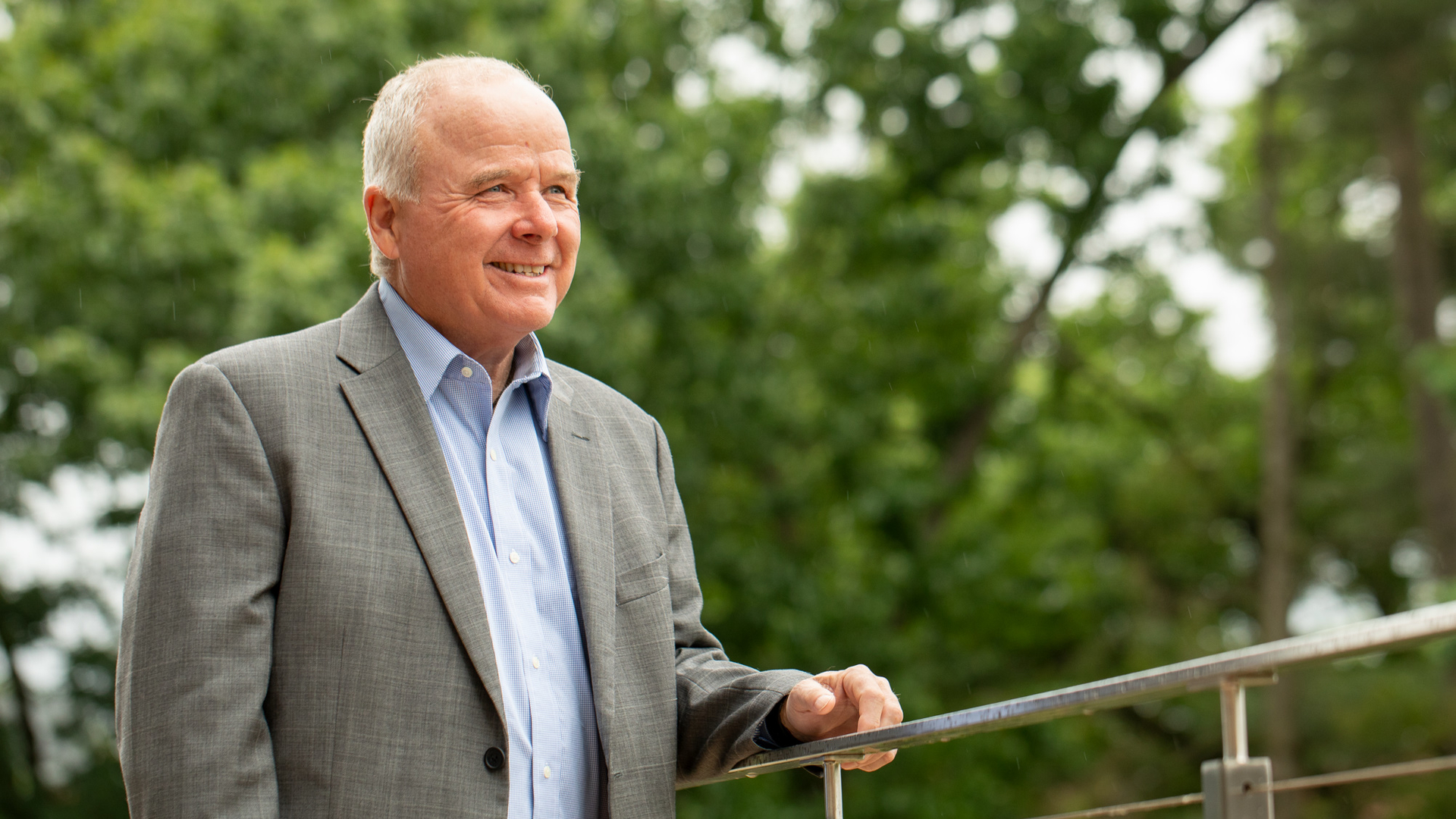Manning Family Foundation provides $3 million gift to UMass Amherst to expand commercialization pipeline
Alumnus Paul Manning ’77 and his wife, Diane, have committed $3 million through their family foundation to expand the Manning Innovation Program at the University of Massachusetts Amherst. The gift provides three years of support in advancing a robust and sustainable commercialization pipeline of applied and translational research projects from the university.
The Manning Innovation Program, based in the university’s Institute for Applied Life Sciences (IALS), provides grants to advance applied research and development efforts in the sciences and engineering through the creation of start-up companies and the licensing of intellectual property. Since its inception, 14 faculty members have received a Manning Innovation Award, including one research professor who has used these new funds to make strides toward new life-saving liver disease treatments. The program has also fostered a stronger culture of entrepreneurship in the College of Natural Sciences (CNS) and greater collaboration among Isenberg School of Management advisors, science and technology researchers, and industry experts as they work to translate research into field-disrupting products.

“Early-stage innovation is a high-risk proposition and difficult to find funding for,” explains Peter Reinhart, founding director of IALS. “The Manning Innovation Program is catalytic in that it creates a competitive mechanism for enabling the creation and development of promising start-up companies focused on human health and well-being.”
The success of the program is illustrated by the diversity and caliber of the projects supported thus far. With these grants, faculty members are translating research into viable solutions addressing problems in areas such as cancer treatments, wastewater treatment, veterinary science and reproductive health care.
The Manning Innovation Program was originally established in 2019 with $1 million in seed funding from the Mannings and was initially open only to CNS faculty. “When we established the Manning Innovation Program almost three years ago, our goal was to fund brilliant minds as they tackled some of the world’s biggest problems,” says Paul Manning. “But the program’s success has surpassed our expectations, which is why we are investing in its expansion. We look forward to seeing many more innovative solutions that are sure to make a global impact.”
A Catalyst for Partnerships
IALS is the catalyst for industry and academic partnerships. The institute contributes to the creation of new ventures and products in collaboration with the Isenberg School of Management, the Berthiaume Center for Entrepreneurship, the UMass Innovation Institute, and the Technology Transfer Office. Examples of intellectual property arising from Manning-supported projects include a treatment to suppress inflammatory bowel disease, new technology to deliver probiotics in gummy form, a methodology for reducing impurity-driven reactions to RNA therapeutics, and an inhibitor for zika virus enzymes to treat birth defects and neurological disorders.
One particular success has been Cyta Therapeutics, an early-stage life sciences company developing products to regenerate and restore liver function in a variety of liver diseases. The research is led by Distinguished Professor of Chemistry S. “Thai” Thayumanavan. The Manning translational grant has supported Thayumanavan’s laboratory in developing a liver-targeted nanogel, demonstrating the drug’s release and mitigation of disease progression, and determining an appropriate dosing regimen in a mouse model.
“The Manning Innovation Program has made a significant impact on CNS faculty,” notes CNS Dean Tricia Serio. “The resources and funding that come with these awards have enabled our entrepreneurial faculty members to pursue areas of research that have real-world implications and then funnel potentially game-changing solutions into an accelerated pipeline of production — all while training students to be future leaders in their fields. This new gift ensures that our innovators will continue to have opportunities to use their expertise to improve lives.”
The Mannings’ philanthropy has prioritized entrepreneurship with an eye toward health care-focused investments. Paul is also an anchor investor of the Maroon Venture Fund, a for-profit venture fund that invests in early-stage companies linked to UMass Amherst.
“Paul and Diane Manning are visionary donors who understand the need to accelerate research translation into solutions for the betterment of society,” notes Chancellor Kumble R. Subbaswamy. “Through their generosity, the university is driving innovation with global implications, and we are excited and grateful for their continued support.”
Paul Manning is an entrepreneur with 30 years of experience in the health care industry. He founded the Charlottesville, Virginia-based PBM Capital Group in 2010. PBM is a health care-focused private investment group that uses its entrepreneurial and operational experience to make high-growth pharmaceutical, molecular diagnostics, gene therapy, life science, health/wellness, and consumer product investments. Earlier in his career, he successfully founded several companies that developed and distributed prescription and over-the-counter products to major chains in the United States. He was named Virginia Entrepreneur of the Year by Ernst and Young in 2002.
Diane L. Manning is a Michigan State graduate who has worked on non-profit boards and organizations, including serving as director for the Manning Family Foundation and co-founder of Focus to Cure Diabetes Foundation, and supports the Foundation Fighting Blindness. In 2010, she received the Inaugural Richmond Dining in the Dark Visionary Award for her dedication to fighting blindness and support of vision research.